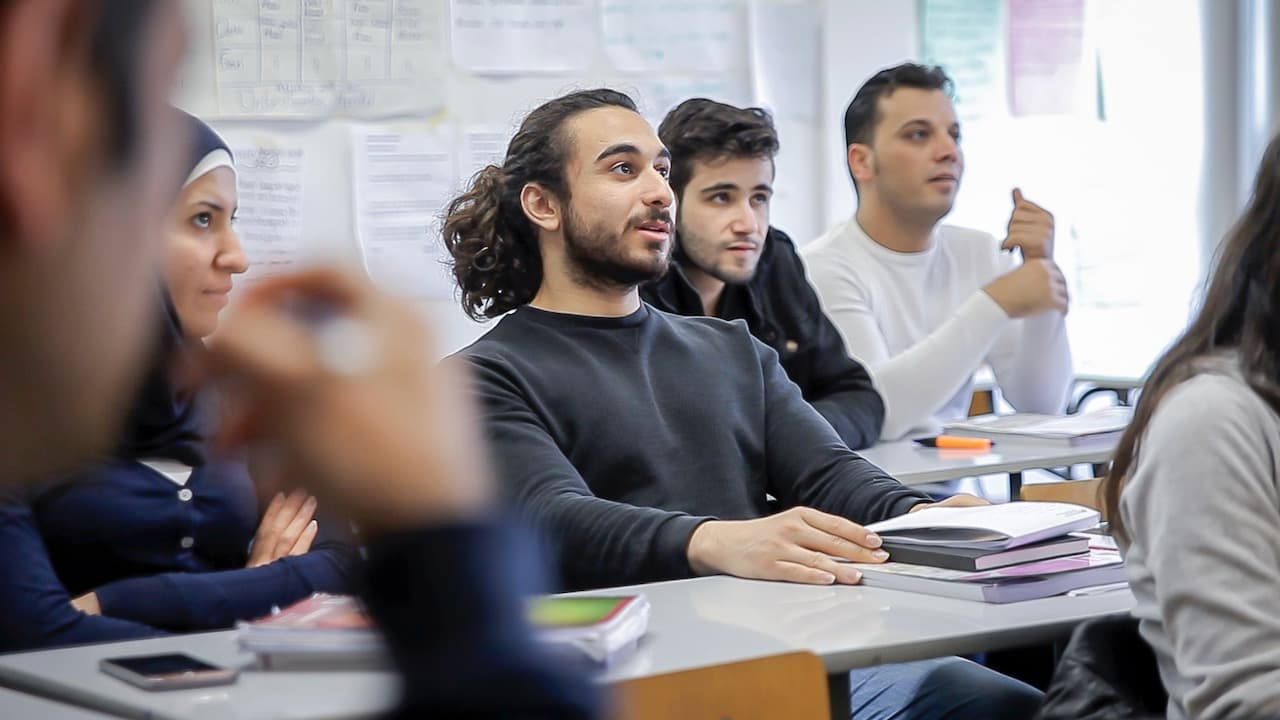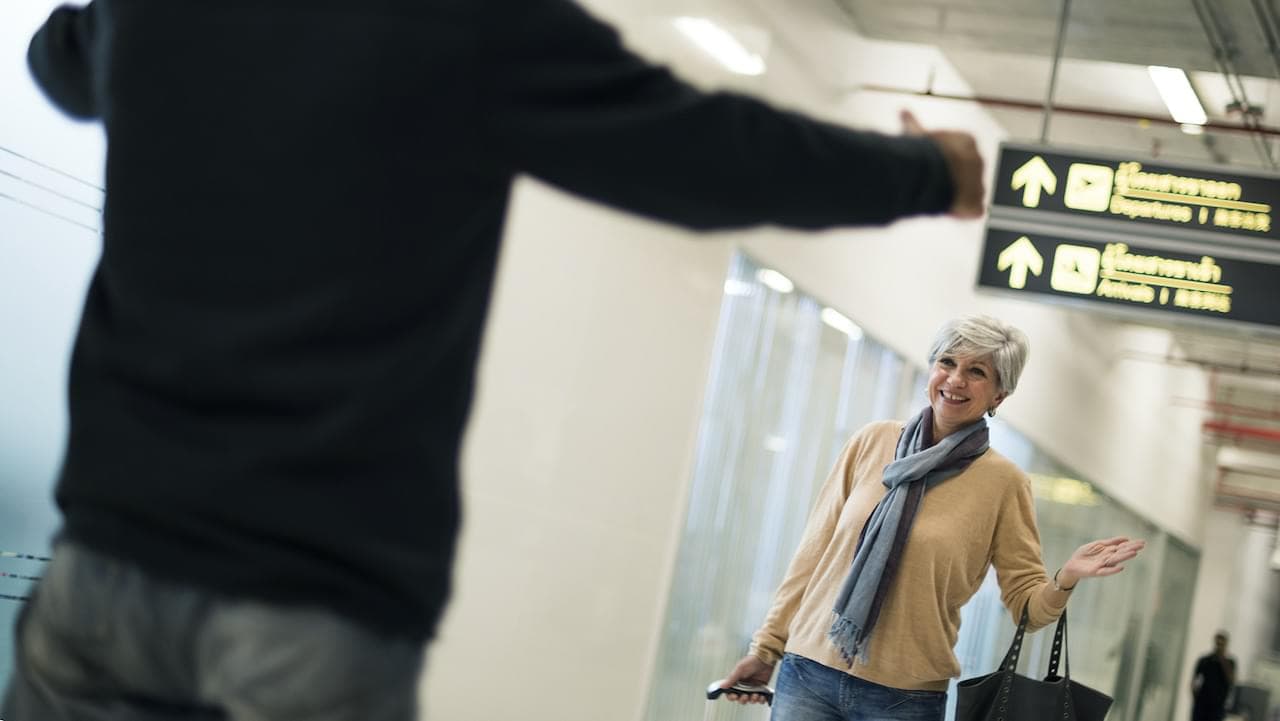Visa for Seeking a Vocational Training or University Programme

Can I come to Germany to search for a vocational training or higher education opportunity?
Accomplishing in a vocational training or university programme in Germany can offer you many future opportunities. Finding a vocational training position or a spot in a university from abroad, however, could be quite a challenge. That is why according to §17 Residence Act, you can obtain a visa or residence permit to stay in Germany and search for a training position or a spot in a university here. This way, you can enter Germany with the respective visa, obtain a residence permit according to § 17, and then look for a suitable training position or a spot in a university programme on-site. Here, you can learn about the requirements you have to meet in order to obtain such a visa or residence permit to search for a training or university spot.
Overview of the changes to Section 17 Residence Act since March 2024:
- Maximum age for applying for a residence permit will be increased to 35
- The required German language skills will be lowered from B2 to level B1
- Duration of the residence permit increased to 9 months
- You can work a part-time job for 20 hours per week and go on probationary employment of up to 2 weeks.
- A so-called „change of purpose“ or “Zweckwechsel” is possible without having to repeat the visa procedure, i.e. you can switch to another qualified occupation (in accordance with §§ 16 a, b, 19 c Para. 2 and § 18 a, b and g Residence Act).
Important: With a type D visa, you may enter Germany and - depending on the purpose of your stay - have the right to apply for a residence permit. To apply for a visa, you must contact the embassy or consulate in your country of origin. A residence permit is required for a longer stay in Germany. To obtain one, you must go in person to the relevant Immigration Office in Germany and apply for a residence permit.
What do I need to know?
Can I obtain a visa to look for a training position?
You can apply for a visa to look for a vocational training programme if you have a school-leavers’ certificate that allows you to attend university in your home country and the required language skills. The age limit is 35 years.
Important: With a type D visa, you may enter Germany and - depending on the purpose of your stay - have the right to apply for a residence permit here. To apply for a visa, you must contact the embassy or consulate in your country of origin. But for a longer stay, you need a residence permit. To obtain one, you must go in person to the relevant Immigration Office in Germany and apply for it.
Can I obtain a visa to come and look for a place to study?
You can apply for a visa to look for a spot at university if you have a school-leavers’ certificate that qualifies you to enter university in Germany or attend a preparatory college (“Studienkollegs”). You also need to have the required language skills. While there is no age limit to apply for a visa, check whether the universities you want to apply to have an age limit.
Good to know: If your school education in your country of origin is insufficient to enter a university in Germany, attending a preparatory college (“Studienkollegs”) is often a prerequisite for studying in Germany. The “Studienkolleg” is an educational opportunity offered at universities or sometimes by external institutions in Germany. It prepares foreign students to enter German universities. At a “Studienkolleg”, you can improve your language skills, acquire subject-specific basics and improve your intercultural and social skills.
Where can I apply for the visa?
If you need a visa to enter Germany, you must first apply at the German embassy/consulate in your country of residence or a neighbouring country.
Please note that it can take several months to process your visa application.
If you do not require a visa to enter Germany, report to the local Immigration Office at your new place of residence after entering Germany and apply for a residence permit that allows you to look for a vocational training or university spot.
Important: Whether you need a visa depends on your country of origin. On auswaertiges-amt.de, you will find a list of countries whose citizens need visas to enter Germany.
Important for Afghan nationals:
Special rules apply to people from Afghanistan when applying for a visa to Germany. As there is no German embassy in Afghanistan, visa applications can typically only be submitted to the German embassy in Islamabad (Pakistan) or Tehran (Iran–currently closed).
If you wish to submit your application in another country (e.g. India, Turkey, Uzbekistan or Tajikistan), you must have lived there for at least 6 months with a valid residence permit. Without such a residence permit, it is not possible to submit your application in another country.
Please note: The procedure, required documents, and processing time may differ from the general information; they often take significantly longer and, in some cases, lead to rejection.
What documents do I need for a visa?
The visa to search for a training or university spot is the National Visa type D. To obtain this type of visa, you must submit all documents required for the National Visa type D and provide additional proof.
In our chapter "National Visa", you will find a list of all the documents that third-country nationals need to obtain a national visa.
For a visa to look for a vocational training position, you will also need the following documents:
- A leaving certificate from a German school abroad or proof of your higher education entrance qualification. This is a school-leavers’ certificate that allows you to enter a university in the country where you graduated.
- Proof of your German language skills. You need at least a B1 certificate.
- Proof that your livelihood is secured for the entire duration of your stay, as you are not allowed to work during this time under the current law. This can be provided by opening a blocked account with at least €1,027 per month (as of October 2023) or submitting a declaration of commitment for a national visa. Please note: Although you must be able to earn a living, the new law (Section 17 (3) Residence Act) allows you to work up to 20 hours a week since March 1, 2024. This will significantly reduce the amount of money you need to prove you have beforehand: BAFÖG (€421 or €452 (section 13 BAFÖG) + 10% (section 2 (3) sentence 6 in conjunction with sentence 5 Residence Act).
Good to know: A blocked account is one way of proving that you have sufficient financial resources. If you are looking for a training or university spot, you are obliged to have a certain minimum amount in this account: Currently, it is €1,027 for every month you spend looking for a training or university spot in Germany. This money remains blocked in the account until you arrive in Germany. Another special feature of the blocked account is that you cannot withdraw or transfer money from it as you wish– you may withdraw a maximum of €1,027 per month unless you have deposited more than the required minimum amount.
To apply for a visa to search for a spot in a university programme, you need to present the following additional documents:
- Proof of your school-leavers’ certificate that qualifies you directly to enter university in Germany or to attend a preparatory college. You can use the ANABIN website to check whether your university degrees meet the requirements.
- Proof of language proficiency for the desired course of study. The German embassy or consulate in your country of residence will tell you in what form you can submit the language certificate.
- Proof that your livelihood is secured during your entire stay, as you are not allowed to work during this time according to the current law. Such proof can be provided by opening a blocked bank account with at least €1,027 per month (as of 2023) or by submitting a declaration of commitment for a national visa. Please note: Although you must be able to earn a living, since March 1, 2024, the new law (Section 17 (3) Residence Act) allows you to work up to 20 hours a week. This will significantly reduce the amount of living expenses: BAFÖG (€421 or €452 (section 13 BAFÖG) + 10% (section 2 (3) sentence 6 in conjunction with sentence 5 Residence Act).
What happens after entering the country?
After entering the country, you must report to the local Immigration Office at your new place of residence within three months and apply for a residence permit there. To do so, you must submit the documents mentioned above and, in principle, a registration document (“Meldebescheinigung”) and a rental agreement. The authorities will check your documents and then decide whether you can get a residence permit.
The residence permit to look for a training place is issued for 9 months.
During this time, you can look for a suitable training position or a spot in a university programme. As soon as you have found a suitable training or university spot, you must apply for a residence permit for the purpose of vocational training or university education. You can do so at the local Immigration Office. You can only begin your vocational training or university programme with such residence permits. However, you can also change the purpose of your residence if you find a suitable qualified job (§18a, §18b Residence Act) or vocational training (§16a Residence Act).
You can find out how to find a suitable degree course and university spot at Hochschulkompass. In our chapter on school-based vocational training, you can learn what requirements you need to meet to start vocational training in Germany and how to find a training spot.
Am I allowed to work during my stay?
If you hold a residence permit to seek a training or study spot, you can take up to 20 hours of part-time employment per week or probatory employment for up to two weeks in total (Section 17 (1) Residence Act, Section 17 (2) Residence Act).
What happens if I can't find a vocational training position or a spot in a university programme?
If you do not manage to find a training position (or a university place) within six months (or nine), you will have to leave the country. You can, however, apply for the same form of visa again at the German embassy after a six-month interval to come back and continue your search for a training or university spot.
However, you can also change the purpose of your stay by finding a suitable qualified job (§18a, §18b Residence Act) or vocational training (§16a Residence Act). To avoid re-entry, it is therefore recommended that you find a qualified job that corresponds to your qualifications before your residence permit expires.
Important
With a type D visa, you may enter Germany and - depending on the purpose of your stay - have the right to apply for a residence permit here. To apply for a visa, you must contact the embassy or consulate in your country of origin. But for a longer stay, you need a residence permit. To obtain one, you must go in person to the relevant Immigration Office in Germany and apply for it.
Similar topics
Additional links
German Embassies Worldwide
Here you can find the German embassy in your country.
Visa for Germany
Here you can learn about visa requirements for Germany.
Our community in the forum
Quickly find answers to any question. Benefit from the experience of your community and exchange ideas.
Support on site
Are you looking for counseling centers, meeting points, and other services? Use our search engine.












